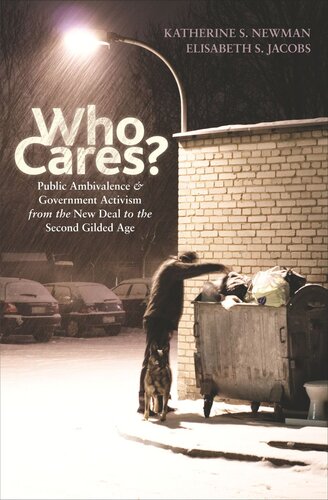

Most ebook files are in PDF format, so you can easily read them using various software such as Foxit Reader or directly on the Google Chrome browser.
Some ebook files are released by publishers in other formats such as .awz, .mobi, .epub, .fb2, etc. You may need to install specific software to read these formats on mobile/PC, such as Calibre.
Please read the tutorial at this link: https://ebookbell.com/faq
We offer FREE conversion to the popular formats you request; however, this may take some time. Therefore, right after payment, please email us, and we will try to provide the service as quickly as possible.
For some exceptional file formats or broken links (if any), please refrain from opening any disputes. Instead, email us first, and we will try to assist within a maximum of 6 hours.
EbookBell Team

0.0
0 reviewsAmericans like to think that they look after their own, especially in times of hardship. Particularly for the Great Depression and the Great Society eras, the collective memory is one of solidarity and compassion for the less fortunate. Who Cares? challenges this story by examining opinion polls and letters to presidents from average citizens. This evidence, some of it little known, reveals a much darker, more impatient attitude toward the poor, the unemployed, and the dispossessed during the 1930s and 1960s. Katherine Newman and Elisabeth Jacobs show that some of the social policies that Americans take for granted today suffered from declining public support just a few years after their inception. Yet Americans have been equally unenthusiastic about efforts to dismantle social programs once they are well established. Again contrary to popular belief, conservative Republicans had little public support in the 1980s and 1990s for their efforts to unravel the progressive heritage of the New Deal and the Great Society. Whether creating or rolling back such programs, leaders like Roosevelt, Johnson, Nixon, and Reagan often found themselves working against public opposition, and they left lasting legacies only by persevering despite it.
Timely and surprising, Who Cares? demonstrates not that Americans are callous but that they are frequently ambivalent about public support for the poor. It also suggests that presidential leadership requires bold action, regardless of opinion polls.